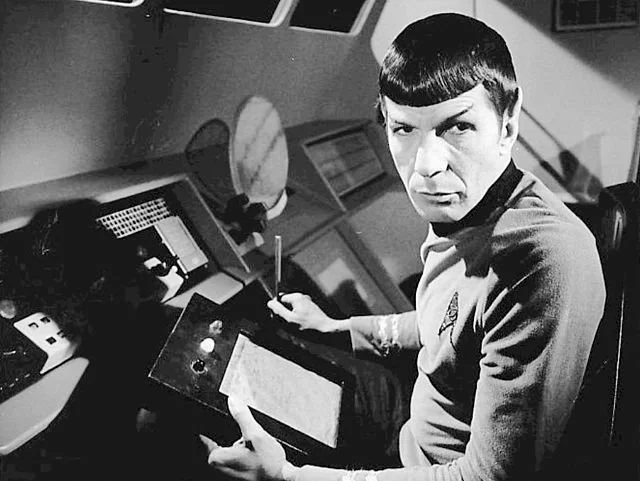“Shekhina (after Leonard Nimoy’s photography collection)” by Dan Grossman
Shekhina
Spock, on the bridge, observes the approach
of the shehkina and the lights revolving around it.
He tells Scotty, “Beam me down to this planet
on which God has made manifest His presence.”
The women rabbis, phylacteries strapped tight
to their arms, glow with divine sparks as they dance
to celebrate his arrival. “It is my mission,” says
Spock, raising his camera, “to gather up the light.”
Their shawls do little to conceal the shadowed
pudenda beneath. Spock recalls the Vulcan pain
of puberty. Maybe it’s akin to blowing
the haftarah at bar mitzvah and the resulting shame.
(Manhood doesn’t come easily to Jews either.)
Guilt, however, is a human emotion, instilled in Jews
from birth but anathema to Vulcans. Such feelings
are cultivated by Jewish parents to keep their
children in the flock, while Vulcans resort
to more celestial methods. Back on earth, guilt has
its uses in restricting certain obsessions. If base
desires aren’t squashed, the soul leaks from beneath
the bed sheets—so say the Kabbalists. Nor do Vulcans
have anything good to say about masturbation.
Curiosity, however, unhinged from titillation,
is what motivated young Leonard to uncover his eyes
as the shekhina entered his father’s shul.
Spock has always dismissed the myriad curiosities
of his alternate life. The Vulcan god, he thinks, resembles
nothing so much as the prime mover of Aristotle.
But now an inner voice tells Spock to view the light
without filter or screen, even as Scotty
hails from above. He lowers his lens as a rabbi
draws near. They meld lips and illuminate the night.
